|
|
|
|
|
|
|
|
No Arctic- science events are scheduled for today.
|
Media
 |
|  | Photo Credit_ Commissioner James McCarthy |
Bethel Remembers Mary Ciuniq Pete. Mary Ciuniq Pete died November 17 at Providence Alaska Medical Center in Anchorage. She succumbed to complications from ovarian cancer. Pete was 61. She left behind a huge legacy in Alaska as she worked to protect subsistence, and then later as the Director of the University of Alaska Fairbanks, Kuskokwim Campus. KYUK
Mary Pete was a commissioner of the US Arctic Research Commission and will be dearly missed.
Local Drivers of Amplified Arctic Warming. Long-term observations of surface temperatures show an intensified surface warming in Canada, Siberia, Alaska and in the Arctic Ocean relative to global mean temperature rise. This warming pattern, commonly referred to as Arctic amplification, is consistent with computer models, simulating the response to increasing greenhouse gas concentrations. However, the underlying physical processes for the intensified warming still remain elusive. Phys.org
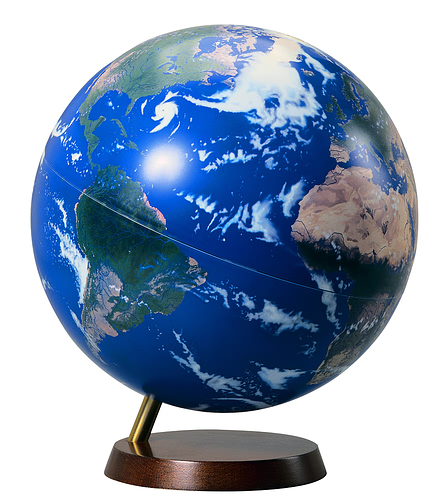 From the Arctic to the Tropics: Researchers Present Unique Database on Earth's Vegetation. From the Arctic to the Tropics: Researchers Present Unique Database on Earth's Vegetation. Which plant species grow where, alongside which others-and why? The diversity of global vegetation can be described based on only a few traits from each species. This has been revealed by a research team led by Martin Luther University Halle-Wittenberg (MLU) and the German Centre for Integrative Biodiversity Research (iDiv) Halle-Jena-Leipzig. In a new study published in the scientific journal Nature Ecology & Evolution, they present the world's first global vegetation database which contains over 1.1 million complete lists of plant species sampled across all Earth's ecosystems. The database could help better predict the consequences of global climate change. Phys.org
Fishy Fuel: Norwegian Cruise Ships to be Powered by Dead Fish. Norwegian cruise operator Hurtigruten said it will power its ships using liquefied biogas (LBG) produced from dead fish and other kinds of organic waste, in a bid to make its ships less polluting. The company will invest 7 billion crowns ($826 million) over three years to adapt its 17-strong fleet. Six of its older vessels will be retrofitted to run on a combination of LNG, electric batteries and LBG. Hurtigruten is also ordering three new ships that will run on electricity, with a diesel engine only as back-up. RT News
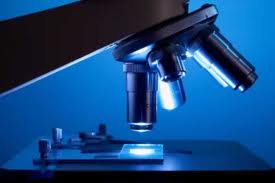 The Cost of Learning: Research in Canada's North up to 25 Times More Expensive. The Cost of Learning: Research in Canada's North up to 25 Times More Expensive. Traveling to remote locations and engaging with Indigenous communities for scientific research in the Canadian Arctic can be up to 25 times more expensive, according to a study in the journal Arctic Science. The study compared the costs of the same three-person, four-week seabird research camp within the north and south of Canada, Alaska, Greenland and Norway.It concluded research in the Canadian North was the most expensive due to air travel as well as consultation with and hiring from communities near research sites. CBC News
|
|
Future Events
DOD Arctic research session at SERDP/ESTCP, Nov. 29, 2018, Washington, DC. An Arctic research focus will be presented at the SERDP-ESTCP annual meeting "Enhancing DoD's Mission Effectiveness." The Strategic Environmental Research 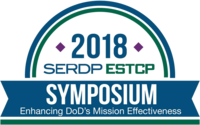 and Development Program (SERDP) and Environmental Security Technology Certification Program (ESTCP) symposium is a nationally recognized conference focusing on DOD's priority environmental and installation energy issues. This year's meeting, at the Washington Hilton Hotel, 1919 Connecticut Ave., NW, Washington, DC 20009, will feature a technical session on Arctic research under the theme of "Resource Conservation and Resiliency." The session is scheduled for Thursday, Nov. 29th, from 8:30 am to 11:30 am, and will include the following speakers: Andrew Nelson (USACE), John Farrell (USARC), Martin Jeffries (USACE/CRREL), John Woods (ONR-RC), Kevin Bjella (USARC/CRREL), and Hajo Eicken (UAF/IARC). and Development Program (SERDP) and Environmental Security Technology Certification Program (ESTCP) symposium is a nationally recognized conference focusing on DOD's priority environmental and installation energy issues. This year's meeting, at the Washington Hilton Hotel, 1919 Connecticut Ave., NW, Washington, DC 20009, will feature a technical session on Arctic research under the theme of "Resource Conservation and Resiliency." The session is scheduled for Thursday, Nov. 29th, from 8:30 am to 11:30 am, and will include the following speakers: Andrew Nelson (USACE), John Farrell (USARC), Martin Jeffries (USACE/CRREL), John Woods (ONR-RC), Kevin Bjella (USARC/CRREL), and Hajo Eicken (UAF/IARC).
Causes for the record low sea-ice extent in the Bering Sea in 2018, November 19, 2018 (Webinar). This seminar is part of NOAA's EcoFOCI bi-annual seminar series focused on the ecosystems of the North Pacific Ocean, Bering Sea and U.S. Arctic to improve understanding of ecosystem dynamics and applications of that understanding to the management of living marine resources. This webinar will be an in-depth look at the driving factors of a warm Bering Sea including ice arrival, extent, and implications.
American Geophysical Union Fall meeting, December 10-14, 2018 (Washington, DC USA). The AGU 2018 Fall Meeting will mark another dynamic year of discovery in Earth and space science, serve as the advent of AGU's Centennial year, and provide a special opportunity to share our science with world  leaders in Washington, D.C. As the largest Earth and space science gathering in the world, the Fall Meeting places you in the center of a global community of scientists drawn from myriad fields of study whose work protects the health and welfare of people worldwide, spurs innovation, and informs decisions that are critical to the sustainability of the Earth.
USARC Commissioner Jacqueline Richter-Menge to deliver the Nye Lecture at the 2018 AGU Fall Meeting. The US Arctic Research Commission (USARC) is pleased to announce that Commissioner Jacqueline Richter-Menge will present this year's Nye Lecture, titled "A Career of Change," at the Fall Meeting of the American Geophysical Union (AGU) in Washington, DC at 2:50 pm on Tuesday, December 11, 2018 in the Marquis room of the Marriott Marquis Hotel, 901 Massachusetts Ave. NW, Washington, DC 20001.
ArcticNet: Annual Scientific Meeting 2018, December 10-14, 2018 (Ottawa, ON Canada). Canada's North is experiencing unprecedented change in its sea and terrestrial ice, permafrost and ecosystems under the triple pressures of climate change, industrialization and modernization. The impacts of these pressures can be seen on food and energy security, shipping, sovereignty, northern community health and well-being, and sustainable development and resource exploitation. All these issues have brought the North to the forefront of national and international agendas. Building on the success of its previous Annual Scientific Meetings and International Arctic Change Conferences, the Arctic Network of Centers of Excellence announces the 14th ArcticNet Annual Scientific Meeting.
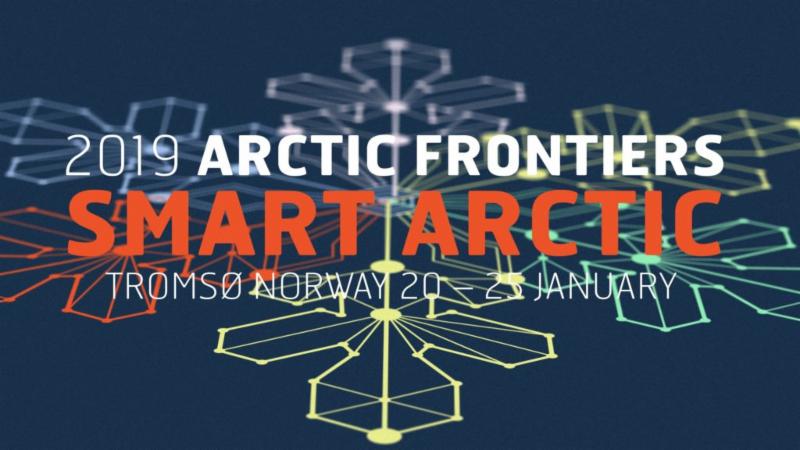 Arctic Frontiers, January 20-25, 2019 (Tromso, Norway). The Arctic Frontiers is a global scientific conference on economic, societal, and environmental sustainable growth. This year's theme will be "Smart Arctic," with a pan-arctic emphasis, and an effort to build new partnerships across nations, generations and ethnic groups. Arctic Frontiers provides a forum for dialogue and communication between science, government and industry. The plenary program will have five main sessions: State of the Arctic, Blue Growth, Smart Solutions, Bridging the Gap, and Arctic business prospects. An abstract-driven science program will address Plastics in the Ocean, the Future of Governance and Handling Vulnerability in Arctic Ecosystems, State of the Arctic and A Smart Arctic Future.
Save the Date! 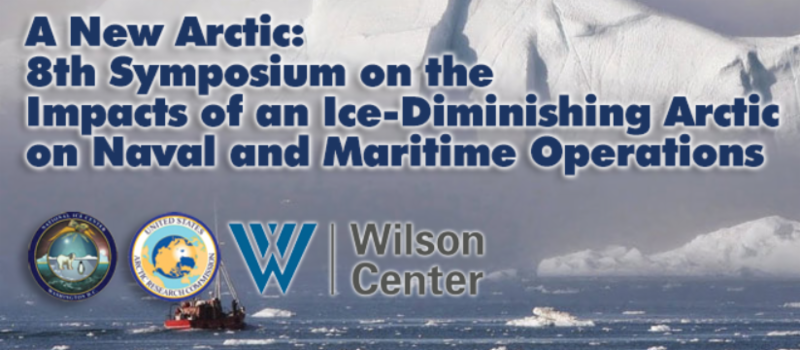
Mark your calendars to attend IDA-8, which some have called one of the best Arctic gatherings around. Historically, this biennial symposium was co-hosted by U.S. National/Naval Ice Center (NIC) and the US Arctic Research Commission (USARC). In 2019, these partners will join forces with the preeminent Wilson Center's Polar Institute, as a third co-host. The now 2-day symposium will be held in the Ronald Reagan Building Amphitheater, in Washington, DC. The event will focus on a broad cross-section of naval and maritime operations and issues in an ice-diminishing Arctic. The symposium brings together nationally and internationally recognized experts on Arctic governance, geopolitics, marine operations, infrastructure, science, and environmental observations, from the local, regional, and pan-Arctic scale. Information on prior symposia, including lists of speakers, video clips, and copies of presentations, is available here. Attendance is free, and registration will begin in Spring 2019. The event will be webcast live, and video recorded.
 of the AAG includes over 8,500 geographers converging from the U.S., Canada, and nearly 60 other countries in a typical year including geographers, GIS specialists, environmental scientists, and other leaders for the latest in research and applications in geography, sustainability, and GIScience. of the AAG includes over 8,500 geographers converging from the U.S., Canada, and nearly 60 other countries in a typical year including geographers, GIS specialists, environmental scientists, and other leaders for the latest in research and applications in geography, sustainability, and GIScience.
|
|

  
4350 N. Fairfax Drive, Suite 510
Arlington, VA 22203, USA
External links in this publication, and on the USARC's World Wide Web site ( www.arctic.gov) do not constitute endorsement by the US Arctic Research Commission of external Web sites or the information, products or services contained therein. For other than authorized activities, the USARC does not exercise any editorial control over the information you may find at these locations. These links are provided consistent with the stated purpose of this newsletter and the USARC Web site.
|
|
|
|
|
|
|
|
|